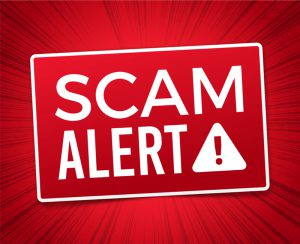 Coronavirus stimulus check scams have already started. This is shameful, but not entirely unexpected.
Coronavirus stimulus check scams have already started. This is shameful, but not entirely unexpected.
U.S. taxpayers will be receiving payments of up to $1,200 per adult and $500 per child, with reductions for special circumstances. To receive a payment, you must have a social security number. Nonresident aliens, people without a social security number, and adult dependents (ex. your college student who is claimed as a dependent on your tax return) are not eligible.
To receive the full $1,200 you must have income less than $75,000 per year (single) or $150,000 (married). Those with income of $75,000 to $98,000 (single) or $150,000 to $198,000 (married) will receive a reduced amount. Those receiving social security retirement or disability payments WILL get a stimulus check, as well as veterans and those who are unemployed
The $500 per child is only available for a child under the age of 17 who is claimed as a dependent on your income tax return.
The IRS has promised to provide more information in the coming days on this page. For now, here is what you need to do to avoid fraud:
- No one has to “sign up” for this. Do NOT give anyone your banking or personal information!!!!
- Any call, text, or email about getting your stimulus payment is a scam!!! Do not respond. Do not click on any links. Do not provide any information.
- Taxpayers who used direct deposit for 2018 or 2019 tax returns will have their payments deposited automatically. If you did not use direct deposit, the IRS will have a web page where you can sign up for direct deposit.
- If you don’t do direct deposit, you’ll get a paper check.
- Any check you receive in the mail now that purports to be a stimulus check is fraudulent. Checks aren’t coming out for a few weeks.
- Don’t fall for any scheme that suggests you can get your stimulus money faster. There will be a “processing fee” and you won’t get any money.
- There are no special government “grants” related to stimulus, so don’t fall for someone asking for personal information to process yours.
When in doubt, assume that the communication you’re receiving regarding your COVID-19 payment is a scam. You should contact the IRS directly if you have any questions. In other words, don’t give information to someone who calls you. Don’t return a call to a number someone gives you. Go to irs.gov and find the customer service phone number there and contact them directly.



